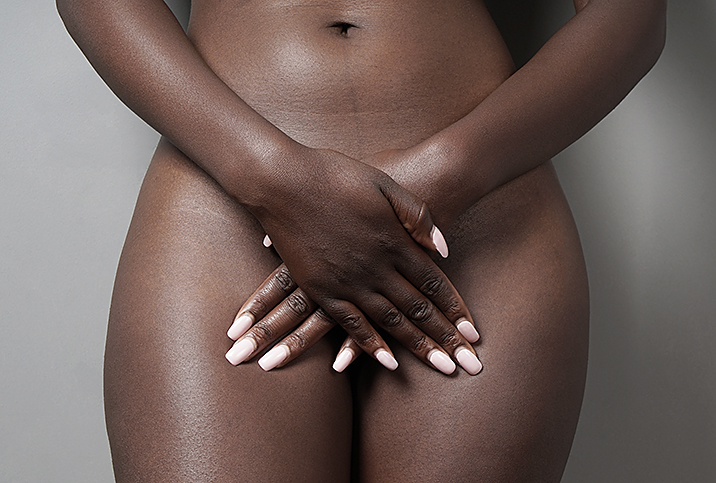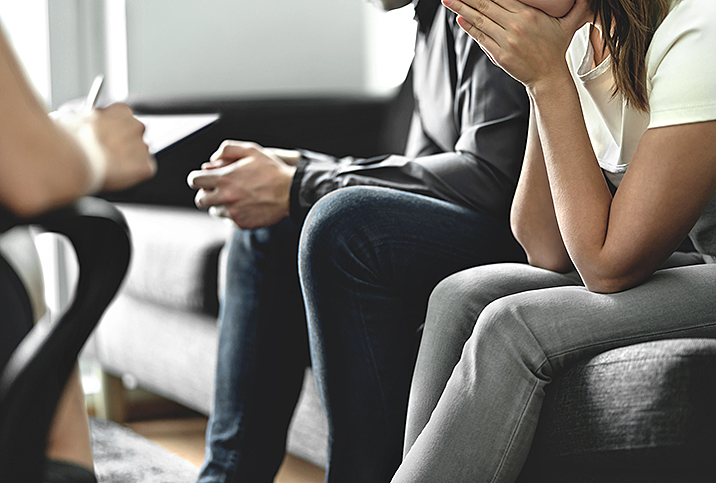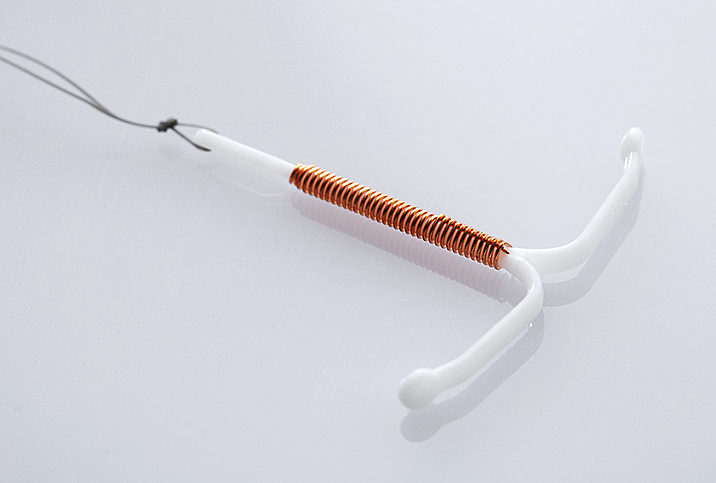Self-Advocacy and You: When Doctors Dismiss Women's Pain

Chalk it up to toxic gender roles or implicit bias, but gaslighting in medicine is common. Female self-reporting often falls on deaf ears, be it the racial disparities implicated in disproportionate maternal death or doctors flat out telling women their pain isn't real.
In my case, multiple optometrists told me my searing eye pain was "impossible," until a young doctor—a woman—believed me and diagnosed me with clogged tear glands. A few easy lifestyle changes later, and I haven't experienced this dangerous, randomly searing pain in years. The point is, the anecdotal evidence is just as shocking (and common) as the results from massive scientific studies.
The Academy of Emergency Medicine found women's emergency room waits to be 33 percent longer than those for men with the same symptoms. The same study found women to be 13 to 25 percent less likely to be administered opiates, the most effective pain reliever, compared to male counterparts with identical complaints. This occurs within a culture that simultaneously spreads the perception of women as weaker and more fragile than men, which you'd think would lead to overprescribing painkillers and reduced wait time.
A contradictory, lose-lose situation is the natural end result of any oppressive mindset. Think of medical gaslighting as the doctor's office version of the impossible battle between being "too slutty" or "too much a prude."
Lawyer and #FreeBritney advocate BJ Courville lays bare the disconnect between women's rights and sexual health, which too often results in women's health concerns not being taken seriously. Watch the full interview here.
Let's look at the historical context
Medical gaslighting isn't new. Nowadays, a woman suffering from early heart disease as a result of arterial plaque may be fatally misdiagnosed with anxiety, but in the past two centuries the most common diagnosis for a woman was "hysteria." Hysteria was the 18th-century way of saying, "It's all in your head."
A similar line is to blame any health complaint a woman has on hormones or her menstrual cycle. (What woman hasn't heard that?) Dr. Stephanie Trentacoste McNally, M.D., said in an article for Northwell Health, "Hormones affect us, but we're not at their mercy." All of this context is important in validating a woman to be her own healthcare advocate. Not only are your complaints valid, but these silencing techniques have been used for centuries on an unfathomable number of women.
Be your own advocate
If your doctor writes off your symptoms as psychosomatic or a result of stress, and your intuition just doesn't agree, push back. It may be helpful to come prepared with a log of your symptoms, what times they occurred and how long they lasted.
If your doctor continues to not take you seriously, it's time to get a second opinion (and perhaps a third and fourth). Shopping around for medical providers can be a hassle within an already difficult system, and the logistics can be a nightmare. If it feels like a poor use of your day off, remember the times you feel healthy and strong are the best times to prepare for symptoms that might return.
Many of us feel the strong urge to be a good patient and to respect authority figures. The tricky thing about authority figures is, they're only human. A healthy relationship between doctor and patient is a partnership, not paternalism.
If you're a woman of color or belong to another marginalized community, be conscious that, statistically speaking, you are more likely to be misdiagnosed than a white woman. It's an ugly truth stemming from ugly beliefs about different pain tolerances from race to race. That said, if you're a woman of color and you've made it this far, you're probably very familiar with standing up for yourself.
There's a difference between anxiously spiraling after googling symptoms and knowing you're not being heard. If you feel comfortable, perhaps bring along a friend or partner to an appointment for support. Always remember that, while your doctor completed years of medical education, no one knows what it's like to live in your body better than you do.


















